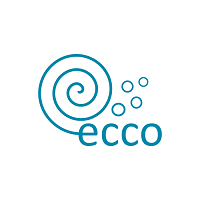Environmental challenges
Anthropogenic activities, such as fossil fuel combustion and deforestation, are responsible for the increase of atmospheric carbon dioxide, which in turn is absorbed by the oceans causing changes in seawater carbonate chemistry. Ocean acidification (low pH) decreases the calcium carbonate saturation states in seawater, thus inhibiting calcification rates in shell-forming marine organisms. Elevated carbon dioxide may have additional sublethal impacts on organismal, developmental and physiological levels and as a result can significantly suppress the abundance and diversity of species.
Aims
Ocean acidification and warming is a worldwide phenomenon with no boundaries which will certainly affect ecosystem services and human communities. Several economic activities that depend on marine resources such as fishing, tourism and aquaculture, will be significantly affected by ocean acidification. The ECCO Project will offer innovative scientific knowledge which can be used to put forward policies and regulations in order to achieve a better environmental management and protection of our oceans. The project aims to address the requests of policy stakeholders and decision makers to “minimize the impacts of ocean acidification through further research and enhanced scientific cooperation at all levels”.
Four different experimental treatments are planned during the ECCO Project using a combination of low or ambient pH and increased or ambient temperature in order to investigate the long-term synergistic effects of those two factors on marine gastropods. An integrated multi-disciplinary approach is used to investigate morphological, physiological, behavioral, chemical and molecular responses of a selected gastropod species on a complementary basis. A long term experiment (one year) is scheduled in order to investigate the direct and indirect effects of low pH and increased temperature and also to reveal possible adaptations of the organisms. The methodology will include scanning of calcified structures with a micro-computed tomograph (micro-CT), advanced analysis of 3D models, Confocal Raman Microscopy for CaCO3 polymorphs and real-time PCR gene expression analysis.
Funding
The ECCO project was funded under the 1st Call for Research Projects ELIDEK (HFRI, Hellenic Foundation for Research and Innovation) for the support of Post-doctoral Researchers by the General Secretariat of Research and Technology (GSRT) within the scientific research area for the Environment and Energy (Project ID: 343).
The project will receive a total budget of 140,000 € and will have a duration of 3 years (2018-2021).




